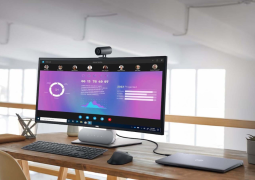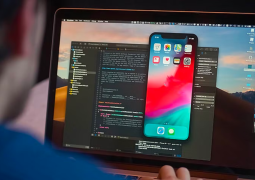Benefits of Free Virtual Private Networking for Smartphone Users
by 30/10/2023 16:270

In a culture where digital communication is becoming more and more common, strong cybersecurity is more necessary than ever. Over 6.4 billion people will use mobile phones globally by 2022, and they will use them for an average of four hours and ten minutes per day. Users’ privacy and data security are also at danger due to the growing ubiquity of smartphone use. Free VPN (Virtual Private Network) services provide mobile phone users with a secure and reliable substitute in this situation. In this article, we explore the unique technological aspects of free VPN and look at their various benefits for mobile cybersecurity.
Cybersecurity Overload and Complexity
Understanding the subtleties of the digital world is essential when analyzing the complexity of contemporary mobile cybersecurity. From simple communication devices, mobile phones have developed into strong, versatile instruments that can store a wealth of sensitive data, including financial information, health records, and private work papers in addition to personal emails and other sensitive data. I have to stress how important it is that mobile phone users have complete safety.
Let me introduce Free VPNs, which have been well known for their capacity to protect user privacy and data. We must first learn how to negotiate the complexities of Free VPNs’ operation before we can fully appreciate their advantages for mobile phone users.
The Free VPNs’ Technological Underpinnings
Fundamentally, a Free VPN creates a safe tunnel between your mobile device and a distant server, usually situated in a different country. All data sent between your phone and the internet is encrypted and rendered unreadable by any eavesdroppers thanks to this tunneling technique. It essentially hides your internet activity, making it very difficult for outside parties to access or follow your information.
Because they use sophisticated encryption techniques, free VPNs are complex. Industry-standard methods that ensure the secrecy of data packets transferred between your mobile device and the server include IPSec, L2TP, and OpenVPN. These protocols combine encryption keys, authentication procedures, and tunneling mechanisms to nearly completely prevent malicious actors from accessing your data.
The Benefits of Free VPNs for Mobile Users
Following our discussion of the technical aspects of free VPNs, let’s examine the actual benefits that mobile device users may experience:
Enhanced Privacy: A free VPN makes it harder for other parties to connect your online activities to your device by rerouting your internet traffic through a secure server. This safeguards your privacy at a time when data mining and eavesdropping are widespread.
Security on Public Wi-Fi: Since public Wi-Fi networks are frequently less secure, free VPNs are quite helpful. Your data is shielded from any hackers who may take advantage of holes in these networks via encryption.
Geo-spoofing: By connecting to servers in other nations, free VPNs let you alter your virtual location. This might be useful for staying anonymous while accessing websites or information that is prohibited to a certain location.
Cyber Threat Protection: Free VPNs guard against a range of online dangers, including malware, phishing scams, and data theft. They remove harmful stuff from your device before it ever gets there.
Data Encryption: Using a Free VPN, your private information is encrypted so that even if it is intercepted, it cannot be decrypted.
In summary, free virtual private networks (VPNs) are essential resources for smartphone users since they provide sophisticated security features without being overly complicated. Keeping secure online is crucial as the mobile landscape develops, and Free VPNs offer a dependable and practical answer. By integrating these technologies into your mobile cybersecurity plan, you can protect your data and privacy in an increasingly linked world while navigating the digital terrain with confidence.



